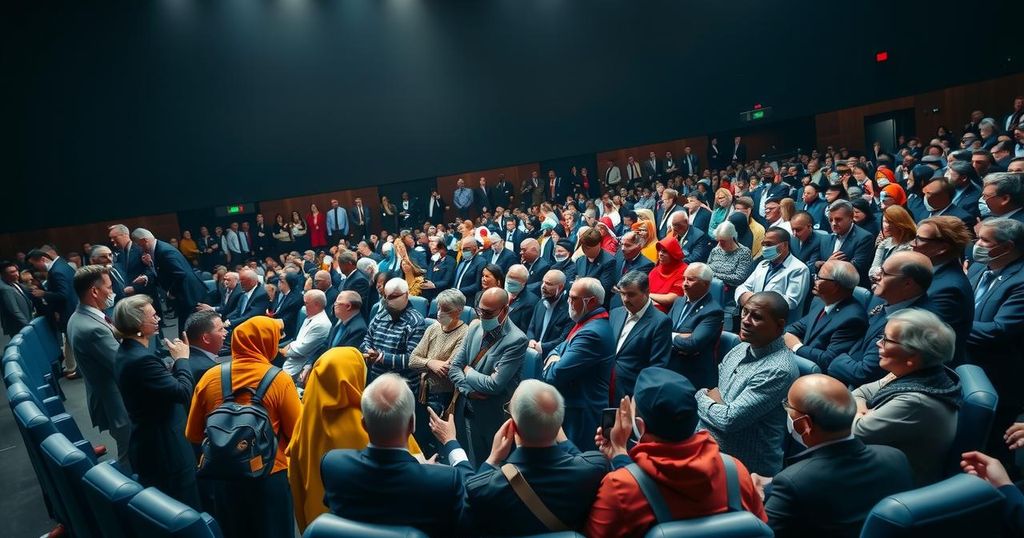South Korea is grappling with declining university enrollments leading to department closures, labor shortages in public transportation prompting foreign hiring, and a full-scale strike by unionized subway workers. Additionally, protests have ignited an anti-feminist backlash, and corporate hesitations regarding participation at global events reflect cautious economic sentiments amid complex international relations involving Ukraine and the US.
The ongoing issues surrounding various sectors in South Korea highlight significant shifts in societal and economic dynamics. With student enrollments declining, numerous Korean universities are closing specific departments, ultimately leading to the reevaluation of educational strategies. Concurrently, Seoul is actively seeking to hire foreign workers to address staffing shortages in the public transport sector, particularly as bus drivers. Additionally, Seoul Metro union representatives have voted in favor of commencing a full-scale strike due to ongoing labor disputes, which is emblematic of broader unrest among workers in the region. Protests at Dongduk Women’s University have sparked a strong anti-feminist backlash, demonstrating the contentious debates regarding women’s rights and representation in Korean society. Furthermore, rumors regarding a potential moratorium at Lotte have surfaced, adding to the concerns of instability within the corporate environment. Amidst these developments, many Korean firms are hesitant to participate in the Consumer Electronics Show (CES), reflecting cautiousness in investment amidst volatile market conditions. Deborah Smith, an esteemed translator, has engaged in discussions surrounding the impact and resonance of Han Kang’s literary works, further underscoring the cultural contributions of South Korean authors. Lastly, the United States has provided prior notice to Seoul regarding a strategic decision to permit Ukraine to utilize long-range missiles against Russia, signifying complex international relations. Collectively, these events portray a multifaceted landscape of challenges and shifts within South Korea’s educational, social, and economic frameworks.
In recent years, South Korea has faced various dramatic changes in numerous sectors, such as education, labor, and international relations. The dramatic decline in student enrollments at universities has prompted several institutions to close down departments, which raises questions about the future of higher education in the nation. Additionally, the public transportation sector faces considerable labor shortages, leading to initiatives aimed at hiring foreign workers. The pressures from unionized workers, protests related to gender equality, and corporate concerns all influence the socio-economic climate. Recent developments in international relations, particularly regarding military strategy in Ukraine, add further complexity to the landscape.
In summary, South Korea currently faces numerous issues that reflect significant transformations in societal norms and economic landscapes. The struggles of the education sector to maintain relevance amidst declining enrollment, the labor crisis within public transportation prompting the hiring of foreign workers, and the turmoil stemming from social movements showcase the shifting realities. Furthermore, corporate hesitations at global trade events and geopolitical maneuvers highlight the extensive implications of these changing dynamics.
Original Source: www.koreatimes.co.kr






